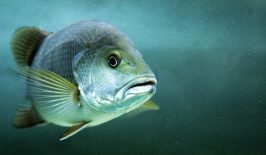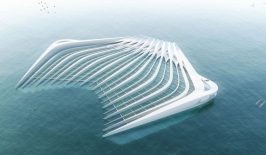Two young American ecopreneurs are developing the world’s first ever farm for growing coral on dry land – up to 50 times faster than conventional methods.
Maybe because most of us don’t see them in our everyday lives or perhaps because in order to see them we have to dive several metres under the sea, many of us forget the importance of corals; ecosystems with lifespans of up to 500 million years that flood our oceans with colour and life. In the last 30 years, half of the world’s coral reefs have died – usually due to destructive fishing practices, pollution, rising water temperatures and the ocean acidification. After seeing a cemetery of dead coral while scuba diving in Honduras, environmental management student Gator Halpern decided to do something about it, and ended up co-founding Coral Vita, the first commercial land-based coral farming company in the world.
There are already several organisations working on conventional reef restoration, where rows of corals are grown in aquatic nurseries and regularly tended by coral farmers. But Halpern’s company is taking a different approach and growing the coral on dry ground rather than under the sea. “It quickly became clear to me that the traditional restoration of the reefs is simply too slow. A coral colony the size of a basketball could take 50 to 75 years to grow in the ocean. By that time, the reefs of our planet may already be dead,” Halpern explains in a report from UN Environment.
Along with his current business partner and former college friend, Sam Teicher, Halpern researched current technologies to find out how they could accelerate the process. The result is the use of a technology that grows corals the size of a basketball in just one year. “Our land-based farms allow us to grow millions of corals at a single site, accelerating the growth of a wider range of coral species. We can also increase the resilience of corals and improve their ability to adapt to conditions that threaten their survival, such as warmer and more acidic oceans,” Halpern explains.
Right now, the team is completing the construction of an experimental farm, located just outside the city of Freeport in the Bahamas. In a few weeks, they’ll receive the first shipment of baby corals that will grow throughout the next 6-12 months.
Their land-based process uses a method called microfragmenting that divides the corals into small pieces that are later fused together. This speeds up the growth process massively, with the corals ready to be replanted in just six to 12 months, instead of between 30 and 50 years. Many coral species that serve as critical building blocks for reefs (such as so-called Brain or Great Star corals) grow too slowly to be feasible for restoration projects using ocean-based nurseries. Now, Coral Vita can grow these corals in a question of months rather than decades.
And by introducing the fragments of coral into tanks of sea water that has been modified to match predicted acidity and temperature levels of oceans in the future, they can also make the new corals much more resilient and better at resisting future climate change challenges.
The corals obtained will be replanted, within a year or so, using an epoxy glue and underwater drills. It is expected that this pilot farm will be able to grow about 10,000 corals per year and once the process is fully tested, Halpern and Teicher hope to set up new farms in other parts of the world.
Although this process is faster than traditional underwater coral farms, they still have a few challenges to solve. One of the main ones is how to replant these corals on a large scale, with the use of robots being one possible suggestion.
While most small-scale coral restoration projects are funded by grants, Coral Vita is currently being financed by different private investors, local tourism companies and NGOs and associations. Individuals can also support their work by donating to the project directly and adopting a coral. You can visit their website to find out more.






